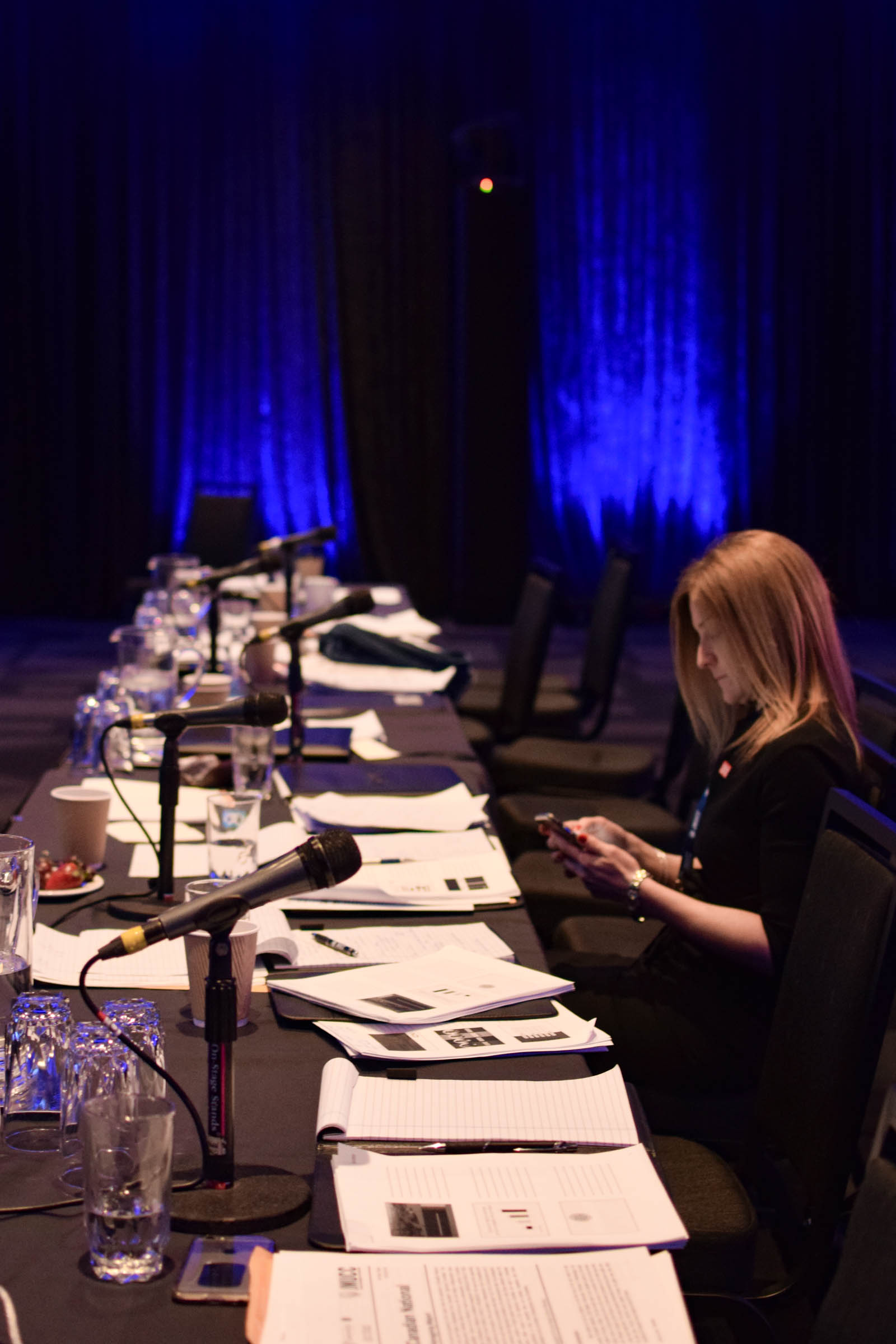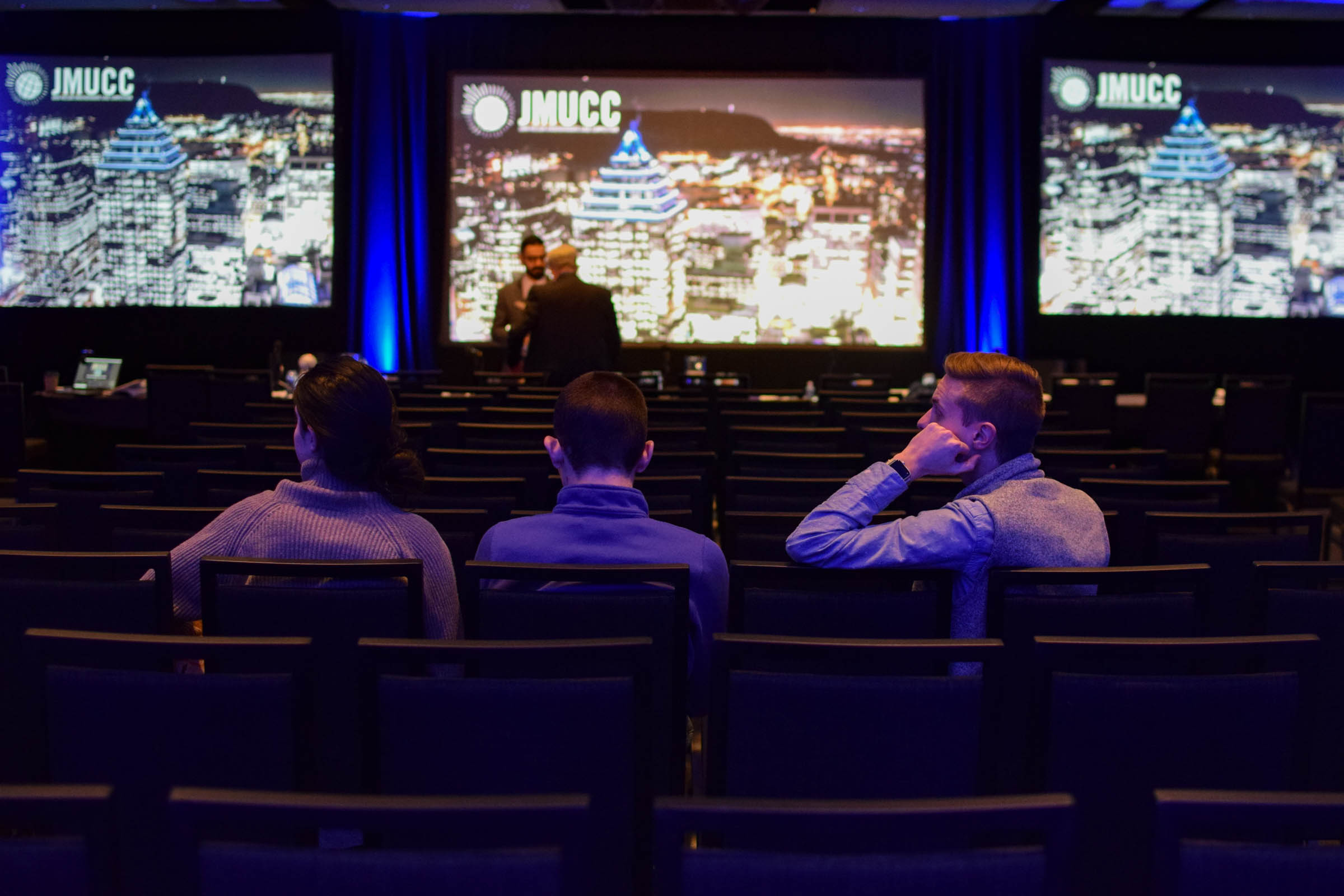Non-business students attending Case Competition walk away inspired
While you need to be a business student to join the John Molson Undergraduate Case Competition (JMUCC), you do not have to be a business student to reap the benefits it has to offer.
Last week, 24 universities from around the world came to the 11th edition of the JMUCC. During the competition, teams of four are presented with a real case from a local business where, in three hours, they must identify a problem and create an action plan how they intend to solve it. Contestants must present their ideas through a PowerPoint presentation to a panel of judges in 20 minutes, after which they will face a 10-minute question period. Teams did this three times from Feb. 25 to 27, and then completed a 24-hour long business case on Saturday. The event is open to the public to watch for free or live online. Students from all business disciplines are allowed to compete—but what about non-business students?
“This whole experience is about not just cracking a case, but it’s also about how you develop that business thinking that’s so crucial and so important to all the programs that people are studying,” said Kawish Lakhani, a tech volunteer for the event.

During presentations, guests witness how teams have worked together by putting forward their individual skill sets. Students can learn valuable presentation skills like voice projection, concise phrasing and developing unique presentation styles. Most importantly, students can learn to have fun while developing new skills; a mix many students deem impossible when presenting. Seham Allison, a contestant for Concordia, did just that by laughing with the judges at her tongue-tied moment when she tried to say the word “compensation.” As an added bonus, with the 10-minute question period, students can see how participants think quickly on their feet—a skill they can use for future job interviews.
Concordia contestant Mathieu Kost brought up a different point of view. He expressed the limitations for non-business students visiting the event, as they do not have access to read the cases beforehand and therefore would not be able to understand and learn fully. However, he did mention that there are benefits for students who own businesses as they could learn “tangible actions that don’t cost too much money […] and then replicate that specific piece of recommendation in their business.”
For those who wish to travel or pursue careers elsewhere, they must know beforehand that every culture thinks differently, especially in a work setting. Students participating in the competition come from Canada, the United States, China, England, Ireland and more. “You can see there’s a cultural difference in how we look at issues, how we solve problems, what we prioritize as a primary issue,” said John Fragos, a member of the Concordia team.
“You can bond with a bunch of JMSB students that you wouldn’t necessarily get to meet if it weren’t for JMUCC, and meet people from all around the world,” said Julia Wheeler, the VP of logistics for the event. Due to the large amount of international students present, an extensive list of companies sponsor the event, such as RBC, CN, Ardene and IBM, to name a few. Students can make connections that can help them in their personal or business-related endeavors.
“It’s inspirational,” said Kevin Phok, a member of the Concordia team. At JMUCC, students from all domains can be inspired and educated. These professional skill sets can be applied to their own lives since, after all, when you’re an entrepreneur, everything is a business opportunity.




